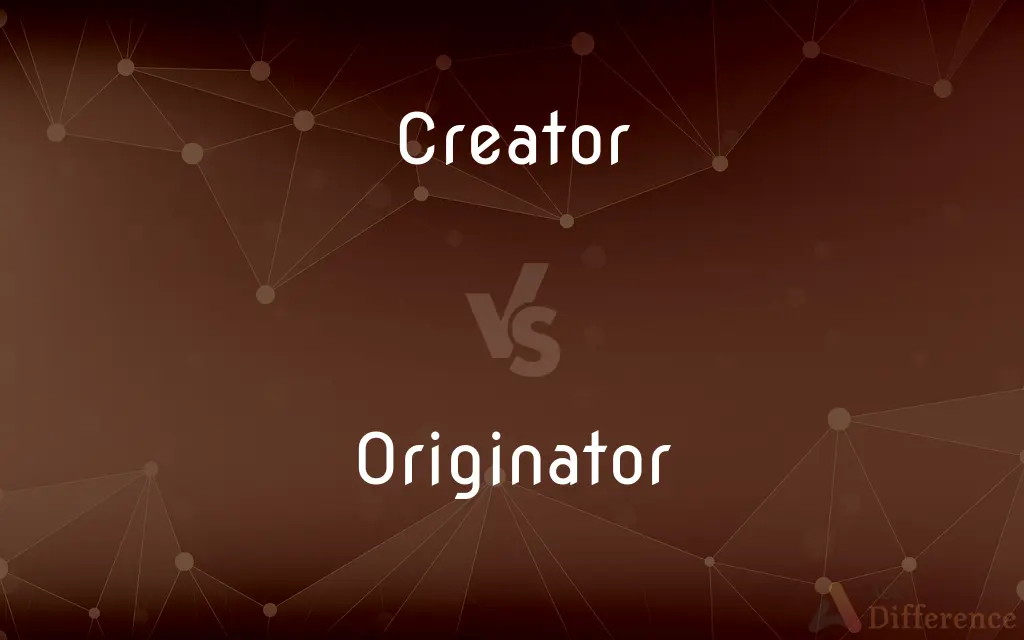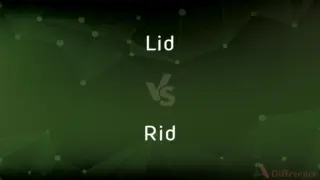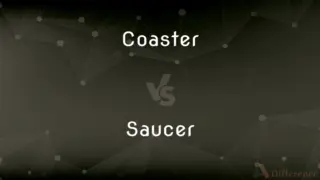Creator vs. Originator — What's the Difference?
By Tayyaba Rehman & Maham Liaqat — Updated on April 17, 2024
Creator refers to someone who brings something new into existence, focusing on the act of creation; originator denotes the initiator of an idea or movement, emphasizing the conceptual start.

Difference Between Creator and Originator
Table of Contents
ADVERTISEMENT
Key Differences
A creator is often associated with artistic or inventive activities, implying a hands-on approach to making something new, whether it be a painting, a piece of music, or a novel. Whereas, an originator might not directly create the physical item but is recognized for beginning a concept, theory, or practice that others can adopt or adapt.
Creators are crucial in areas where the act of producing a final, tangible product is valued, such as in arts, crafts, or technology. On the other hand, originators are more prominent in intellectual, business, or social movements where the initial idea sparks subsequent development and execution by others.
The role of a creator can sometimes overlap with that of an originator, especially in fields like literature or science, where the creation of a work or a theory also establishes a new intellectual path. Conversely, an originator might not engage in the actual development process but sets the groundwork that others will follow.
In legal and business contexts, a creator holds specific rights to their creations, typically through copyright or patents, which protect their tangible outputs. Whereas an originator might be credited with the inception of an idea but may not have legal claims unless the idea is patented or otherwise legally protected.
Recognition for creators often comes through accolades for the quality or innovation of their tangible outputs, such as awards in artistic fields. On the other hand, originators might be lauded for their visionary thinking and leadership, impacting broader societal or industry changes.
ADVERTISEMENT
Comparison Chart
Definition
Someone who makes something new.
Someone who initiates something.
Focus
Tangible production.
Conceptual initiation.
Fields of Relevance
Arts, technology, crafts.
Intellectual, business movements.
Legal Rights
Copyrights, patents.
Patents, intellectual property.
Recognition
Awards for tangible outputs.
Acclaim for visionary thinking.
Compare with Definitions
Creator
An individual responsible for the artistic or original work.
The movie’s creator was also its director.
Originator
A person who first thinks of or begins something.
The originator of the theory presented it at the conference.
Creator
A person who brings something into existence.
The creator of the sculpture worked tirelessly for months.
Originator
The initiator of a concept that leads to further development by others.
The originator of the viral trend saw it spread globally.
Creator
A figure often referenced in religious contexts as a divine architect.
Believers worship their creator through various rituals.
Originator
Someone whose ideas lay the groundwork for a project or movement.
The originator of the non-profit helped shape its mission.
Creator
Someone who invents or produces something new.
The creator of the new software patented his invention.
Originator
Often used in financial terms relating to the first issuer of a security.
The originator of the mortgage later sold it to a bank.
Creator
Synonymous with a founder in terms of business or initiatives.
The creators of the startup presented their pitch to investors.
Originator
Refers to a primary source or initial promoter of a specific idea.
The originator of the method wrote several books on the subject.
Creator
One that creates
The creator of a new television series.
A born creator of trouble.
Originator
To bring into being; create or start
Originated the practice of monthly reports.
Creator
Creator God. Used with the.
Originator
To come into being; start
An invention that originated in China.
Creator
Something or someone which creates or makes something.
Kenneth E. Iverson was the creator of APL.
Originator
Someone who originates, creates or founds something.
Creator
(social media) content creator someone who regularly produces and publishes content on social media, especially of a monetizable nature.
Creator economy
Originator
One who originates.
Creator
The deity that created the world.
Originator
Someone who creates new things
Creator
(sports) A player who creates opportunities for their team to score goals; a playmaker.
Creator
One who creates, produces, or constitutes. Specifically, the Supreme Being.
To sin's rebuke and my Creater's praise.
The poets and artists of Greece, who are at the same time its prophets, the creators of its divinities, and the revealers of its theological beliefs.
Creator
Terms referring to the Judeo-Christian God
Creator
A person who grows or makes or invents things
Common Curiosities
Can a creator also be an originator?
Yes, in many cases, especially in fields like literature or innovative technology, the creator of a work or idea can also be its originator.
How do society and industries recognize creators and originators?
Creators often receive recognition through awards and accolades for the quality or innovation of their products, while originators are praised for their pioneering ideas and impact on future developments.
What is a creator?
A creator is someone who brings something entirely new into existence, typically focusing on the tangible aspects of creation.
Is an originator always an individual?
Not necessarily, an originator can be an individual, a group of people, or an organization.
What roles do creators and originators play in business?
Creators are often behind the development of new products or services, while originators might be the strategists who conceive the overarching business models or marketing strategies.
Which is more important in a startup, a creator or an originator?
Both roles are vital; the originator might pitch the initial business idea, while the creator develops the actual product or service.
How do creators and originators impact society?
Both have significant impacts: creators by introducing new products and arts, and originators by setting new ideas and movements in motion.
How are creators and originators protected legally?
Creators are protected by copyrights and patents on their tangible outputs, whereas originators might have intellectual property rights if their idea is unique and qualifies for protection.
What does an originator do?
An originator initiates the first idea or concept that starts a new project, theory, or movement.
What motivates a creator compared to an originator?
Creators are often driven by the process of making and innovating, whereas originators are motivated by conceptualizing and initiating.
Do all creators own their creations?
While creators generally hold rights to their work, ownership can vary based on employment contracts or specific legal agreements.
Can an originator patent an idea?
An idea alone cannot be patented unless it is developed into a unique, tangible, and usable format or process.
Who earns more, a creator or an originator?
Earnings can vary widely depending on the field, the impact of the work, and market factors.
Can an originator be a passive participant in a project?
Yes, an originator might not actively engage in the development process but still plays a crucial role by providing the initial concept.
Share Your Discovery

Previous Comparison
Lid vs. Rid
Next Comparison
Coaster vs. SaucerAuthor Spotlight
Written by
Tayyaba RehmanTayyaba Rehman is a distinguished writer, currently serving as a primary contributor to askdifference.com. As a researcher in semantics and etymology, Tayyaba's passion for the complexity of languages and their distinctions has found a perfect home on the platform. Tayyaba delves into the intricacies of language, distinguishing between commonly confused words and phrases, thereby providing clarity for readers worldwide.
Co-written by
Maham Liaqat














































